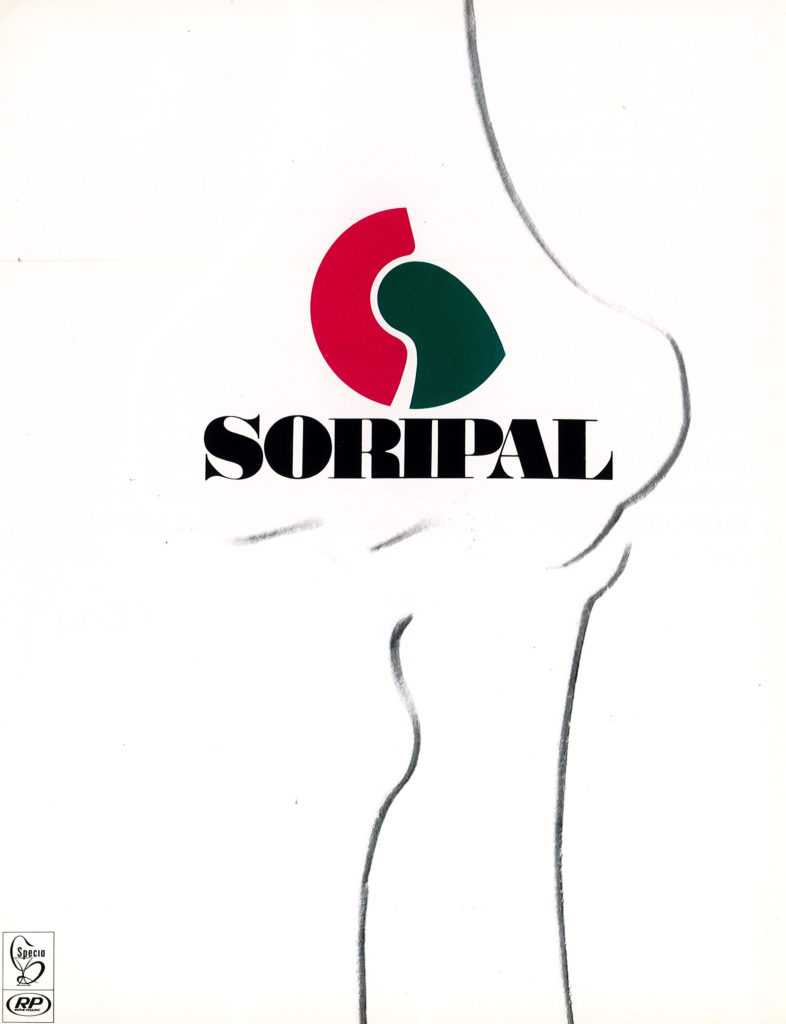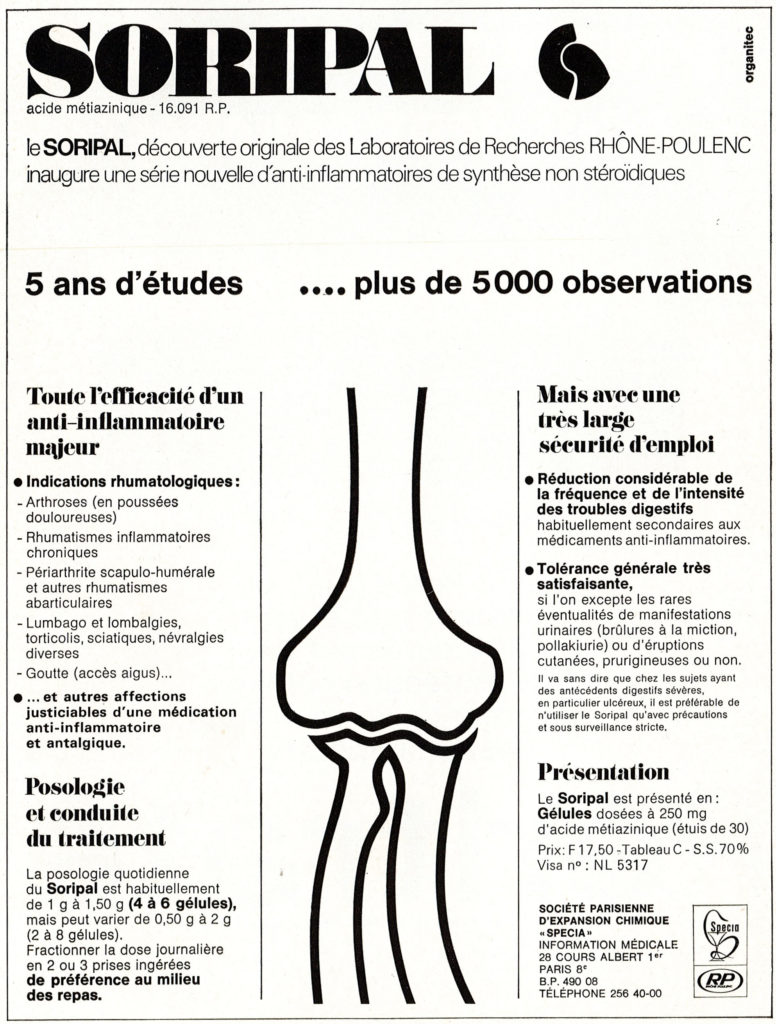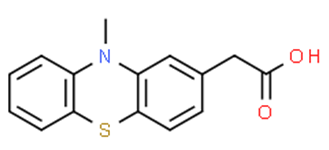Soripal® containing metiazinic acid was used for the treatment of inflammatory and degenerative diseases of the knee joint, and for rheumatismal diseases in general, including chronic inflammatory rheumatism, arthritis, lumbago, low back pain, torticollis, sciatica, neuralgia, and other arthritic afflictions and inflammatory conditions. Each drug capsule contained 250 mg of metiazinic acid (or methiazinic acid), a phenothiazine derivative (10-methylphenothiazine-2-acetic acid). It was commonly used to treat degenerative joint disease, to counteract cartilage degeneration (chondroprotective effect). The compound was considered as a non-steroidal anti-inflammatory drug (NSAID), and also presented antipyretic and analgesic properties. The drug was safe and relatively well tolerated in human, but its use as a NSAID was abandoned in the 1980, replaced with other drugs, like ibuprofen considered more potent and with fewer side-effects.



A schematic representation of a knee, or an articulation, which was the main site of action of Soripal.



